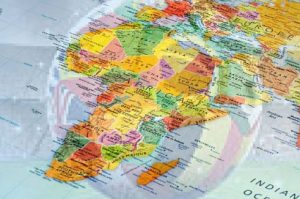Africa Cup of Nations – AFCON

HISTORY OF AFCON
Now that the 32nd Africa Cup of Nations is just around the corner let’s remember the birth of football in Africa.
Started in June 1956 at the FIFA congress in Lisbon.
The first African Cup of Nations was held the following year in Sudan, but it included only four nations: Egypt, Sudan, Ethiopia, and South Africa. South Africa was struggling with the worldwide boycott due to its apartheid regime, which also explains why their team consisted of only white players.
The country was hence disqualified, leaving Ethiopia to the final match to play against Egypt. In the end, Egypt was the first champion. Egypt –as the winning team – hosted the next cup and won a second time.
The third AFCON was held in Addis Ababa with nine teams competing for qualification. The final four consisted of Egypt, Ethiopia, Nigeria, and Tunisia with Ethiopia winning the cup.
The 1960s marked the entrance of Ghana into the games. Their first appearance was in 1963, where they won against Sudan and became the champion for the first time. Two years later, they competed with a completely different team, yet they managed to win again.
In 1968, the quota of the final tournament was increased from 4 to 8 with 22 teams competing for qualification. Once qualified, the eight teams competed for the semifinals in two separate groups of four. The four winning teams then competed for the grand finale. DRC was the winner of 1968 after beating Ghana.
The matches were aired on TV for the first time in 1970. The 70s was the decade of the first time. The 1974 Cup was the first and only time the final game had to be repeated because the first game ended up in a tie.
Morocco won for the first time in 1976 while Ghana won for the third time in 1978. This victory made Ghana the first nation to win three championships. Also, DRC became the first African nation to qualify for the FIFA World Cup in 1974.
During the 1980s, Cameroon made a significant breakthrough, winning two of the five games and reaching the final in a third cup. Algeria was also dominant, reaching the semifinals in almost all of the games except the AFCON in 1986. They eventually won in 1990.
The 1990s was a turning point in AFCON because the concept of the quarterfinals was introduced, for which 12 teams qualified. Ivory Coast was the first winner of this new system.
Another major event of the 90s was the revival of South Africa since they made their first appearance after the boycott was lifted with the end of Apartheid in 1994. South Africa hosted the games in 1996, where the final tournament quota was increased to 16. They won the competition that year and reached the final the following year.
During the late 90s and the 00s, Egypt outshined by winning three more titles and having six in total. Egypt was also the first team to win three times in a row in 2006, 2008 and 2010.
The 2000s was also the beginning of signing overseas players for the African teams; however, this caused severe time conflicts as the other continental football matches clashed with AFCON. Starting from 2013, the tournament has been held in only odd-numbered years to avoid time conflicts with the World Cup.

There were several political conflicts in Africa in the 2010s that disrupted the tournament. The civil wars in North Africa prevented their teams from either hosting or joining the cups. Besides, the 2015 game suffered a few relocations and delays due to the Ebola virus epidemic.
Currently, AFCON continues without further disruption. The 2019 game going on in Egypt. Has 24 teams instead of 16.
Source: Research/Wiki/Ghana Education/African Studies



